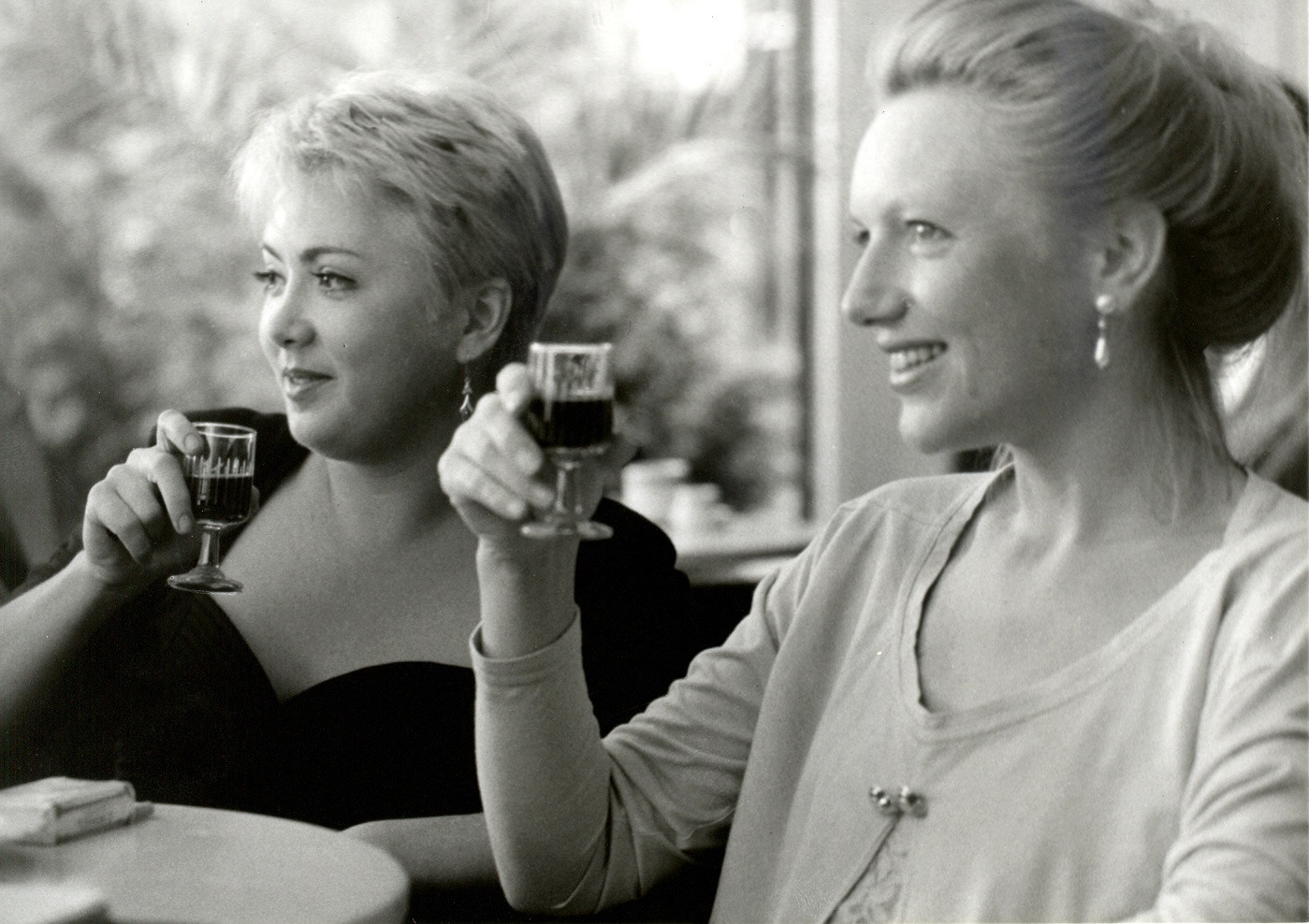
20 Years of Freedom 2009 / Édes Emma, drága Böbe / Hungary, Germany 1991
The titular heroines of the film by Hungarian directing classic István Szabó used to teach Russian at primary school. After the fall of Communism they vainly struggle with the requirement to requalify as English teachers and with their desire to enjoy the social status they once had. This impressionistic essay won the Ecumenical Jury Prize and the Silver Bear at the Berlin IFF, and the European Film Award for Best Screenplay.


The heroines in the title of this dramatic story are young women who taught Russian at primary school during the former regime. But times have changed. After the fall of Communism, Russian is no longer a compulsory subject in schools. Böbe and Emma try to requalify as English teachers, but they only remain one step ahead of their pupils. They don’t fare much better in their private lives, either. They can’t afford their own flat, so they have to share a room in a hostel. What’s more, Emma is having an affair with the school’s married headmaster which is going nowhere, and Böbe gets into trouble with the police for her lucrative liaisons with wealthy foreigners. Their aspirations that the new post-Communist environment would allow them the kind of social status they enjoyed under the old regime, essentially come to nothing… This impressionistic essay tells of the loss of an outwardly secure world built on false foundations. The film by legend of Hungarian film István Szabó won the Silver Bear at the Berlin IFF, and the European Film Award for Best Screenplay.
81 min / Color, 35 mm
Director István Szabó
/ Screenplay István Szabó, Andrea Vészits
/ Dir. of Photography Lajos Koltai
/ Music Mihály Móricz, Tibor Bornai, Feró Nagy, Robert Schumann
/ Editor Eszter Kovács
/ Producer Gabriella Grósz
/ Production Objektív Filmstúdió
/ Cast Johanna ter Steege, Enikő Börcsök, Péter Andorai
/ Contact Objektív Filmstúdió

István Szabó (b. 1938, Budapest) graduated from the Hungarian Academy of Drama and Film in Budapest (1961). He gained world recognition with the intimate films Age of Illusions (Álmodozások kora, 1964), Father (Apa, 1966), A Film about Love (Szerelmesfilm, 1970) and Budapest Tales (Budapesti mesék, 1976). During the 1980s he attracted the attention of international audiences with the historical dramas focusing on civil power and powerlessness: Mephisto (1981 – Oscar for Best Foreign Language Film, FIPRESCI Award and Best Screenplay at the Cannes IFF), Colonel Redl (Oberst Redl, 1984 – Jury Prize at the Cannes IFF) and Hanussen (1988). Subsequent films also focus on Central European traumas: Meeting Venus (1990), Dear Emma, Sweet Böbe (1991), Sunshine (1999), Taking Sides (2001) and Being Julia (2004).
Objektív Filmstúdió
Róna u.174, , Budapest
Hungary
E-mail: [email protected]

Annamária Basa

Csaba Papp
Film Institution Rep., PR & Marketing
First-hand brews throughout the year.
Be among the first to learn about upcoming events and other news. We only send the newsletter when we have something to say.